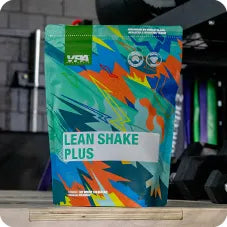Your Cart is Empty
The Three Pillars of a Healthy Life: Sleep, Diet, and Exercise
September 15, 2023 3 min read

When we talk about working out, it's clear that your gym sessions matter. But let's not forget what happens beyond those gym walls—what you put in your body, how you hydrate, and, of course, the quality of your sleep.
Here's the scoop: Getting a good night's sleep is an absolute must if you want your exercise efforts to pay off effectively.
The connection between diet, exercise, and sleep is like a well-choreographed dance—they're all intertwined and affect each other. These three pieces of the healthy living puzzle work together to shape your overall well-being.
The Relationship Between Sleep, Diet, and Exercise
Diet and Exercise:
Energy Balance: Diet and exercise are key components in regulating your energy balance. The calories you consume through your diet provide the energy needed for physical activity. If you consistently consume more calories than you burn through exercise and daily activities, you may gain weight. Conversely, if you burn more calories than you consume, you may lose weight.
Nutrient Intake:Proper nutrition is essential to support exercise performance and recovery. Carbohydrates provide energy for workouts, protein aids in muscle repair and growth, and fats are necessary for overall health. A well-balanced diet ensures you have the nutrients needed for optimal exercise performance.
Hydration: Staying hydrated is crucial for exercise, as even mild dehydration can impair physical performance. Proper fluid intake through your diet (water-rich foods) and drinking fluids is essential for both exercise and overall health.
Exercise and Sleep
Quality of Sleep:Regular exercise can improve the quality of your sleep. Engaging in physical activity can help you fall asleep faster, enjoy deeper sleep, and experience fewer disruptions during the night. However, vigorous exercise too close to bedtime can sometimes interfere with sleep, so timing is important.
Sleep Regulation: Exercise helps regulate your circadian rhythm, which plays a significant role in your sleep-wake cycle. Exposure to natural light and physical activity during the day can help synchronise your body's internal clock, promoting better sleep patterns.
Stress Reduction: Exercise can reduce stress and anxiety, which can lead to improved sleep. Stress is a common disruptor of sleep, and regular physical activity can help manage stress levels.
Diet and Sleep
Food Choices and Timing:The foods you consume and when you eat can affect your sleep. Large, heavy meals close to bedtime can lead to discomfort and indigestion, making it harder to fall asleep. It's generally recommended to have a lighter meal a few hours before bedtime.
Caffeine and Alcohol: Consuming caffeine or alcohol, especially in the evening, can interfere with sleep quality. Caffeine is a stimulant that can make it difficult to fall asleep, while alcohol can disrupt the sleep cycle, leading to poorer sleep quality.
Nutrient Deficiencies:Certain nutrients, such as magnesium and melatonin, can influence sleep. Diets lacking these nutrients may lead to sleep disturbances. Including foods rich in these nutrients in your diet can potentially improve sleep.
Which Is Most Important: Diet, Exercise, or Sleep?
When you're juggling a jam-packed schedule, it's natural to want to focus on activities that offer the most bang for your buck. The thing is diet, exercise, and sleep are like a trio of inseparable buddies—you can't really pick one over the others.
Now, if you're strapped for time or feeling a bit overwhelmed, it might be a smart move to consult with a healthcare professional. They've got the inside scoop on your health history and can help you figure out which lifestyle changes should take the front seat. Plus, they can refer you to specialists like nutritionists, physical therapists, and sleep experts who can give you personalised guidance.
Bottomline
In summary, a healthy diet, regular exercise, and good sleep are interconnected and collectively contribute to your overall health and well-being.
To optimise these relationships:
• Maintain a well-balanced diet that supports your energy needs and provides essential nutrients.
• Incorporate regular physical activity into your routine, aiming for a mix of aerobic, strength, and flexibility exercises.
• Prioritise sleep hygiene practices, such as creating a comfortable sleep environment and sticking to a consistent sleep schedule.
• Be mindful of the timing of meals, exercise, and caffeine or alcohol consumption to promote better sleep.
Also in Featured

Creatine Capsules vs Powder — Which Is Better for Strength and Performance?
November 06, 2025 6 min read
Read More
Running Gels Explained — What They Are, How They Work, and When to Use Them
November 06, 2025 10 min read
Read More
Why Energy Gels Are a Game-Changer for HYROX Athletes and Functional Fitness Training
October 15, 2025 6 min read
Read More Recent Articles
- Creatine Capsules vs Powder — Which Is Better for Strength and Performance?
- Running Gels Explained — What They Are, How They Work, and When to Use Them
- Why Energy Gels Are a Game-Changer for HYROX Athletes and Functional Fitness Training
- Body Type Diet: How to Eat for Your Ectomorph, Mesomorph or Endomorph Build
- The Best Way to Take Creatine for Maximum Results (2025 Guide)
- Creatine Gummies Scam? What You Need to Know vs Powder
- 10 Proven Whey Protein Benefits (and Why WPI Might Be the Best Option)
- Third-Party Tested Supplements in Australia: Why It Matters More Than Ever
- 7 Best Protein Powders for Weight Loss in Australia (Updated 2025)
- Prebiotic Collagen Protein for Gut Health and Weight Loss: What You Should Know
${{amount}}













